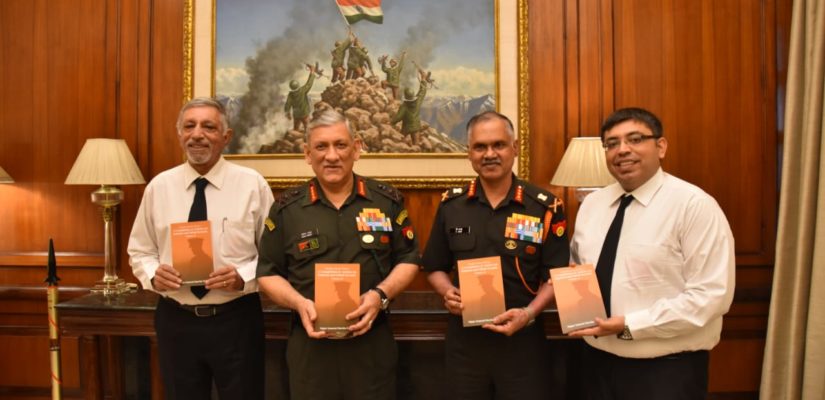
Religious tolerance is a part of national fabric The Statesman 29 May 19
Religious tolerance is a part of national fabric 29 May 19
I do not normally write on religion as being an army veteran, all religions are equal in my eyes. I have been to every religion’s place of worship and felt the same serenity and peace in each one. However, comments by some pseudo secularists have compelled me to pen my thoughts. I am also not affiliated to any political party or religious organization.
Since the commencement of electioneering for 2019, a lot has been written that if Modi comes to power for a second time, Hindutva would raise its head pushing religious tolerance and secularism to the background. It has been propagated that Modi may seek to support Hindutva movements for enhancing his party’s electoral base in the country. Nothing could be further from the truth.
Hindu’s are known through history to be tolerant and accommodating to all religions. Invaders, who have ruled India under different periods sought to push their religion on majority Hindu’s but succeeded only partially. The Mughals, British and Portuguese attempts are well documented. Jews, Zoroastrians, Armenians and Syrians amongst others, persecuted across the globe in different times, have found solace on Indian soil and continue to flourish in the country. It is a nation with religious diversity. Some of the oldest places of worship of most religions exist in India.
In no other nation are minority members considered as valuable vote banks and be given special attention by political parties banking on breaking Indian unity on religious lines.
The selection of candidates by many political parties, less the BJP, for the recently concluded elections was based on the religious and caste divide of the electorate. There was strong belief that Indians vote on religion and caste grounds, ignoring personal beliefs. This failed in elections 2019 as the results indicated that the Indian voter cast his choice for ‘India first’ and national development, proving that the nation stands taller than religion, caste or creed.
The Indian armed forces, representing the true Indian spirit, has soldiers from all religions, communities and classes operating side by side, trusting one another with their lives. In army institutions, officers follow the religion of their men, with little regard to their own. The Sarv Dharam Sthal, existing in every military institution, does not propagate one religion but all, soldiers irrespective of religion and belief, worship together seeking blessings for all its members.
Compare this scenario to that witnessed across the globe. In Pakistan, minorities are persecuted with vengeance. Forcible conversions, including of underage girls, are defended legally and the blasphemy law is misused at every instance. Militants target Shia’s and Ahmadi’s at will and none from the state even bother to offer condolences. The Pak army employs Hindu’s only in menial tasks, advertisements for which state ‘only for Hindus’, and are insulting, to state the least. The Hindu population in Pak is now almost negligible.
Minorities are treated in a similar manner in Saudi Arabia, Iran, Bangladesh and most other Moslem nations. The targeting of Hindu’s in Bangladesh has drastically reduced their presence. In Saudi Arabia, the Shia’s, considered minorities are targeted openly by the state, ignoring international criticism. The Sunni’s are reversely targeted in Iran. In the US, Afro-Americans are considered as second-class citizens.
In India, one incident of targeting a minority community member makes headlines and the government is forced to respond. Targeting of majority community by minorities or from the same community is rarely commented upon. This is because we either treat all our minorities equally or even better.
When 51 Muslims were killed in the attack in the Mosque in Christchurch, New Zealand, the Organization of Islamic Countries (OIC) organized a special session to criticise Islamophobia. When many more minorities in number are targeted in a single strike by terrorists in Pakistan, the same OIC maintains silence. They criticise India for a single incident but maintain silence when such incidents happen in their own nations.
In India, many state that the BJP is polarising India on religious grounds. They fail to notice, that for the BJP to achieve the success it has in the recent elections, cannot be due to polarisation but the belief in the populace that it’s continuity would be better for the nation. It has broken the shackles of religion and caste and proved that the Indian voter is no longer guided by these factors alone.
Critics should understand that tolerance and secularism is far more developed in India than in most nations across the globe. More important is the belief that nationalism, national security and development would continue being major considering factors for future elections and not caste, creed and religion. Let there be no doubt, India will grow as a nation and carry all religions and communities together. Let us not take one incident and blow it out of proportion.